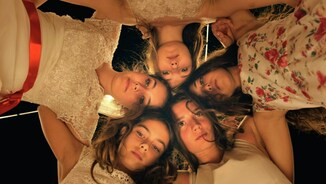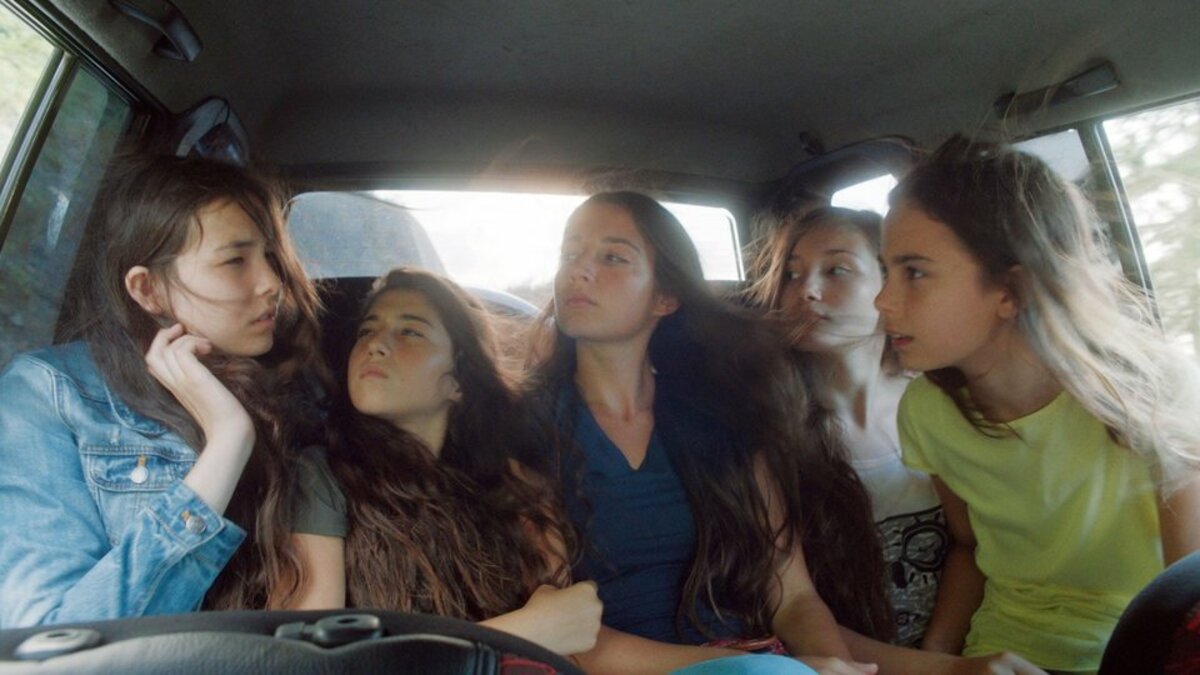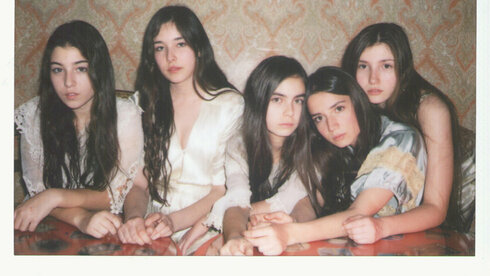Mustang is the first feature length film directed by Deniz Gamze Erguven who also shares co-writing credits with Alice Winocour (Augustine, 2012). The film follows five adolescent sisters who live under the care of their conservative Grandmother (Nihal G. Koldas) and their controlling, mean-spirited Uncle Erol (Ayberk Pekcan).
The film starts off with the girls finishing school as normal, instead of taking the bus home they decide to take a long walk down the beach as the sun is out; watching this scene from a Western perspective seems completely ordinary, they’re just girls playing in the sea with their friends who just happen to be of the male species. It’s astonishing to see how these antics can be viewed so differently from different cultures; the girls are heavily punished for their actions and the older three, Selma (Tugba Sunguroglu), Ece (Elit Iscan) and Sonay (Ilayda Akdogan) are quickly married off whilst the younger two, Lale (Gunes Sensoy) and Nur (Doga Zeynep Doguslu) are shown how to be wives and how to tend to their future husbands.
The film primarily centres on the youngest sister, Lale, which is a smart move because she signifies hope in the film; she’s in the position where she’s still young and could potentially escape the claustrophobic life that’s been mapped out for her, not to mention her personality is so rebellious and feisty – she’s the character we look out for and root for, I love how she defies gender norms and stereotypes and I think Lale, and all the other characters for that matter, are extremely well written and thought out.
The score, mise-en-scene and cinematography do an amazing job in putting the audience in the sisters’ shoes as much as they possibly can; the score is fantastic and is our emotional cue. At the start of the film, we see a lot of open space; the girls’ home is full of wide, bright windows and there’s generally a lot of light in the home, this soon changes. As their freedom is restricted, so is our viewing of these windows, they become more and more out of shot, to the point where we only see windows with bars on them. One of the best camera tricks in the film for me is where one of the girls is looking out of the window longing to be out, whilst the camera zooms in on the metal bars that have been drilled onto the windows in desperation, it really is very simple but impactful. Turkey is such a beautiful country in terms of scenery, and for the most part of Mustang we don’t get to see much of it; our main protagonists don’t get to see it, so why should we? It’s only towards the end that we are given a burst of illustrious scenery provided by the beautiful landscapes of the country of Turkey. This is effectively juxtaposed with the rest of the film and comes across as literal breath of fresh air for the girls and a metaphorical one for the audience.
The acting is so naturalistic and perfect, I believed every bit of the sisterhood and all five actresses should get recognition for their roles; even though they all dress and look similar in the film, they manage to make themselves an individual in terms of acting and personality and that is a credit to the film. The script is also to be praised, so full of witty and intelligent lines, my favourite being – “now it was our turn to wear shapeless, shit coloured dresses”, which is actually one of the main changing points for the film in terms of tone.
I loved Mustang; despite the serious situations the sisters find themselves in, the film never gets too sombre and always manages to stay somewhat uplifting and inspirational. The female characters in the film, for the most part, are always one step ahead of the people who are trying to control them, and I really like that. The film empowers women and gives a powerful and poignant representation of growing up in an oppressive environment within a developing nation, and for that I applaud it.
Emily Craig on Twitter






